How to Stay Relevant in the Age of Neural Networks
Amazingly, technology research has come so far that machines have learnt how to handle human tasks.
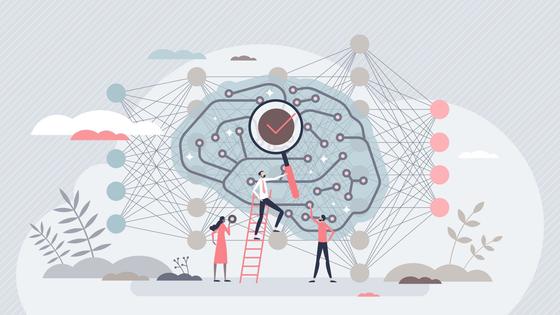
And yet, the first computer appeared less than a hundred years ago! It feels as if modern technology has become intelligent - so well that it now competes with the abilities of humans.
So, how do you stay relevant in an era of change? Is it possible to outpace the machine? Today, we'll explore what these fantastic neural networks are and how they're attacking. We'll look at the "risk" areas and break down how to surpass the neural network.
ChatGPT, Visper, Midjourney and other networks have become favourites of the modern world. They have learnt how to create texts, paint pictures, compose music and much more. One can understand scientists' curiosity about what else artificial brains can do. Nevertheless, it's a worry for many, as some professions now seem to be in danger of extinction. So, what is AI, our world's new tyrant or helper? What sets us apart from neural networks, and how can we stop the machine from conquering the world?
Where are neural networks used, and why are they so popular?
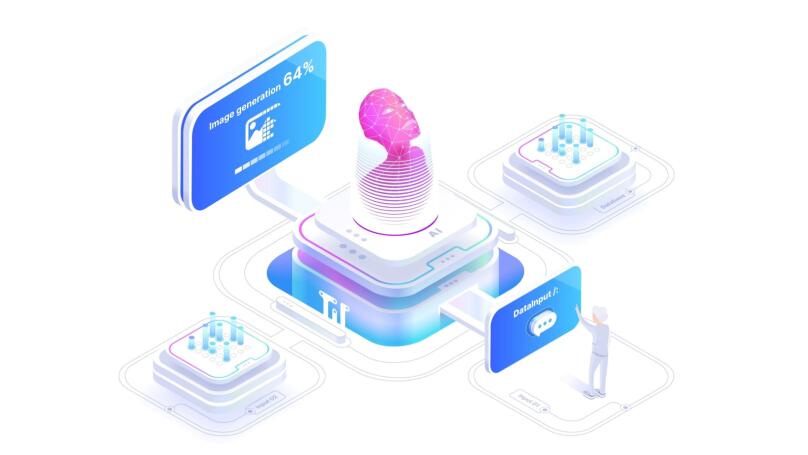
Artificial intelligence, like an octopus, has launched its tentacles into different spheres and is already being used in many tasks. Here are some examples:
1. Marketing
The fact is that ChatGPT, Midjourney, Visper and other similar networks allow you to create a lot of new and unique content in a short period. So, they can quickly write a social media post, create promotional narratives, headlines, and emails, and even promptly generate an image based on your request - this is a piece of cake!
2. Medicine
U-Net, Convolutional Neural Networks, Recurrent Neural Networks, and other neural networks allow you to get a more accurate image of internal organs and analyse the data. Today, they are considered indispensable when it comes to high-precision research. Moreover, neural networks that create a treatment plan, a list of recommendations, or a set of exercises based on the information gathered have already been developed, too.
3. Journalism
Creating articles has become easier with neural networks such as ClaimBuster, Notion AI, and BERT. Thanks to them, it is possible to generate a text and check the reliability and relevance of facts. Why do we need, for example, literary critics and reviewers if artificial intelligence can analyse even a work of fiction?
4. Analytics
Neural networks can now collect and process data and even produce reports based on it. Tableau, Brighterion and other networks cope with these tasks with flying colours. The banking sector is already using them, as well as giant corporations. After all, who else can process such massive amounts of information quickly?
And this is not even a complete list of niches with examples of specific neural networks that exist today! But it already looks impressive, doesn't it? Nevertheless, it is a bit daunting for a specialist who wants to maintain their position in the labour market.
Neural networks vs humans and why neural networks win
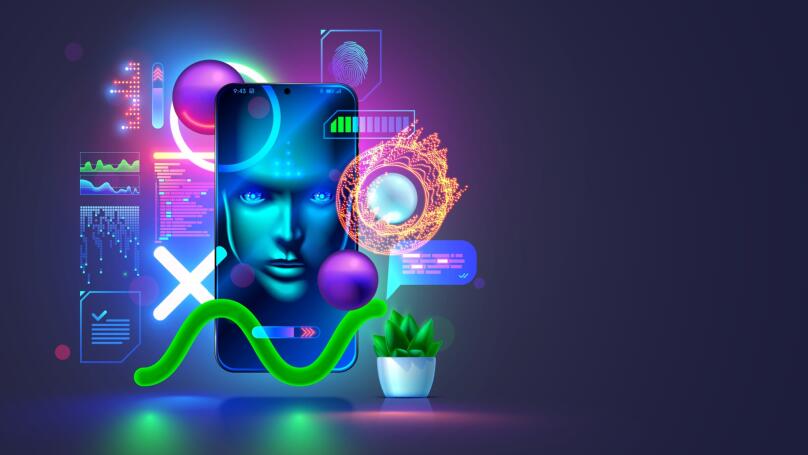
Neural networks have many undeniable advantages over live specialists, for example:
-
Machines learn quickly and adapt easily to new tasks
It takes time for a human to learn a new task. The simpler it is, the faster we can master it. But what if we get presented with something completely new, something we have never encountered before, even indirectly? A human would probably take days or months to do the job correctly. On the other hand, machines have no such problems - no matter what they need to do, they will do it equally quickly and satisfactorily.
-
Physical and psychological factors are not a hindrance
Neural networks do not care about survival. They cannot feel emotions. They are ready to work as soon as there is access to electricity. In that sense, they are more resilient than any of us. Whereas a human needs time to sleep and rest, a machine can perform its tasks 24/7 without stopping.
-
High task execution speed
"Flash, flash, hundred-yard dash" is a phrase heard in "Zootopia." But it is not so ironic when applied to neural networks. Within a short time, they are ready to generate many images and texts and analyse tonnes of information. In short, they can do in minutes what it takes a regular person a whole working day to do.
As a result, many professions are under threat. First, these are professions utilising physical labour. Even now, machines perform most manual operations in factories. And today, when neural networks have learnt to program themselves, there is no need, for example, for an entire team of developers - one or two and a neural network controlled by them are enough. Artificial intelligence has even become a competitor of analysts! After all, even an experienced specialist cannot process tonnes of information at such a speed and conclude the results obtained. Moreover, neural networks are gradually becoming a threat to copywriters and journalists. It is no secret that computers now write texts even for complex queries. Here, the proverbial saying "You give him a word, and he gives you ten" plays on the AI's side: it is enough to specify one word so that a complete and relatively high-quality article appears in a second. Can humans do that? Hardly.
The situation is no less dangerous in the sphere of graphic design. Neural networks paint pictures and create photos that did not exist before. It is amazing how detailed the image turns out to be. Moreover, it is a boon in advertising: a person cannot draw several hundred different narratives in a short time. With AI, all the user must do is choose the right ones.
All of this can be unsettling, even frightening. How do we live in such a reality? We hasten to console you: no matter how incredible artificial Intelligence looks from the outside, it will never replace a real professional. And here's why.
Why human professionals will always be better than neural networks
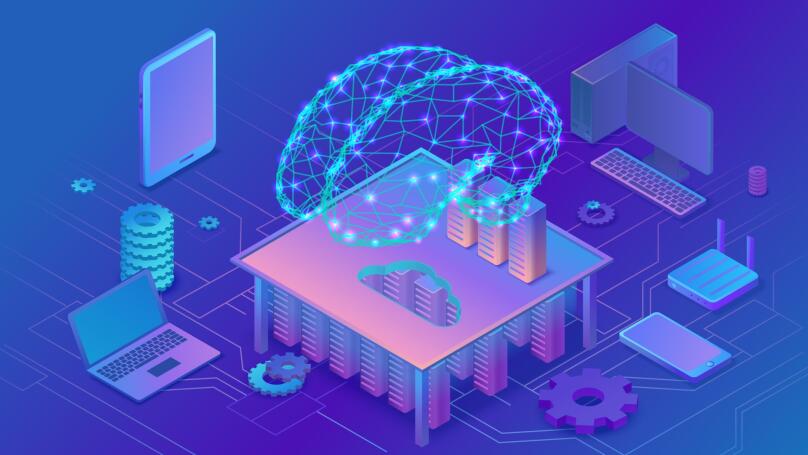
Humans are amazing. Book authors, film directors, musicians, and designers have repeatedly proven this. In the clash between artificial intelligence and human beings, we always win. And why is that? Our brain is nature's most powerful computer. Just imagine, in a day, it can generate so many electrical impulses that the entire telephone system in the world cannot compare with it! So, if we rationally use the resources that nature has given us, we will not be out of work.
The point is that a neural network operates according to a particular scheme. Let's consider it in the example of graphics. Before giving the machine a task, billions of images are loaded into it to teach it to distinguish them and thus enrich its knowledge base. When the user formulates a query, the neural network composes a new image from the data it already knows.
In some ways, this is like our way of thinking. Before we learn anything, we look at examples, gain experience, and only then create our own. That is why, at the first stages, the work of novice artists looks imitative in many ways. But this is where the clue lies! Over time, the painting technique becomes better because the artist is honing their skills. They take subjects for paintings from life, catch impressive angles, and capture them.
So, what distinguishes us from machines? Let's look at the strengths of a professional.
Will. The artist has a desire, a need to draw, to pour out their inspiration. A neural network obeys the user's requests. It has neither its own will nor motivation. Indeed, without the inner need to express oneself, a world masterpiece will not come out, as in any profession.
Flexibility. Have you ever noticed that your brain starts thinking about better adapting to the circumstances as soon as conditions change? What would be a loophole to find in new situations so that it would be cosy and good? People not only know how to adapt but also do it involuntarily throughout their lives. Neural networks are also trained to adjust the programme to solve a problem. However, people rely on their life experience and creative thinking. Neural networks use embedded data, so developers often have to create new algorithms.
Creativity. If a team gets the same task, people will solve it differently. A person is not subject to a predetermined scheme. They can come up with something extraordinary.
Unique thinking and self-awareness. If a neural network "thinks" with algorithms, a human being thinks with images. Life experiences and feelings determine many of their actions. Additionally, non-standard thinking is also a matter of pride exclusively for humans. What is it? The mind tends to consider the problem from different sides. Let's take a simple example. When a neural network writes a text, it relies on a colossal text base but does not understand what words should be used to evoke certain emotions in the reader. On the other hand, a specialist takes information from various fields of knowledge and, on this basis, comes up with such analogies that the reader immediately understands its message.
Interaction with other people. We know what language to speak with each other. Furthermore, it's not just verbal communication. We "read" emotions, show empathy, and learn to support others in words and deeds. It helps us cope with difficulties, realise our potential, and do our job better than a neural network. After all, neural networks are always lone wolves, not team players; they do their job, and that's it. They are unable to accumulate human resources and benefit from communication.
Lectera’s Online Courses by topic
How to tame a neural network: what skills you need today
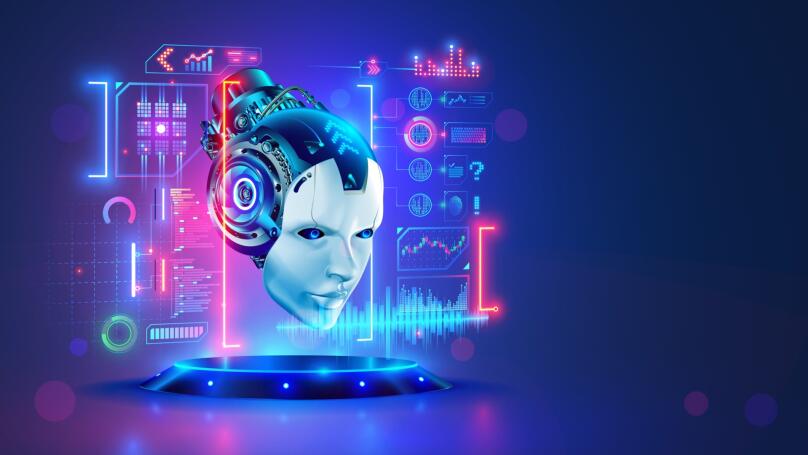
Now, we face the main question. What should you do to stay in demand?
1. Develop soft skills, particularly:
-
Emotional intelligence. It is like a rainbow, encompassing a whole range of skills. It helps you build rapport, analyse your emotions, and understand other people's feelings. Moreover, thanks to the ability to monitor your reaction to different situations, you can avoid stress. No neural network will understand a person the way another will.
-
Critical thinking. A little scepticism - and the magic will happen! Critical thinking helps you identify inaccuracies and flaws. It means you will check all the facts and rationally approach things. Neural networks periodically make mistakes, and the results often must be finalised, so correcting this falls to a person's share.
-
Stress resistance. Various things happen at home and work. The ability to react adequately to a situation and not take it to heart will save nerve cells and help find a solution.
2. Develop self skills
These are many skills that a person develops as part of personal self-improvement. They help to shift the focus on oneself and one's needs. They make a person realise what is best for them. Furthermore, they help balance work and rest so you will not let yourself go out of order. You will be able to work steadily, just like a computer, and forget about the worry of burning out. So, what should you do to become like this?
-
Observe your emotional state. To stay "in the resourceful state" constantly is very difficult. But how do you do it? Do not overload yourself. Look for a balance so as not to "burn out". Recover your strength as soon as you realise that your body requires it.
-
Learn self-discipline. You can solve any task faster if you know how to plan your affairs and find motivation.
-
Strive for personal growth. Remember, you have long wanted to try something unusual or find a new hobby. Now is the perfect time. It will broaden the scope of your interests and help you find ways to solve complex problems. Perhaps a different area of expertise will tell you how to solve a work problem. From here, it's a smooth transition to the next point.
3. Develop professional competencies
-
Improve your competence. The world does not stand still, and innovation permeates all market areas. To effectively cope with new challenges and keep up, learn the skills you will need in your job. To do this, we recommend taking regular refresher courses, listening to podcasts, and attending training sessions or webinars. As a result, you will acquire the advantageous skills mentioned above, making you a more sought-after professional. Undoubtedly, your employer will also appreciate your desire for professional growth!
-
Befriend a neural network. Yes, AI is now being actively implemented in various fields. Yes, its abilities surpass many human ones. It's a fact. Nevertheless, no one has yet forbidden the use of it. You can decide how best to perform a particular action to achieve the desired result. Use neural networks to make your work more efficient. Mastercard, for example, has done this. Its Brighterion program analyses payment data that helps identify the customer's purchasing power and interests. A company employee uses all this to find the right offer for the consumer.
-
Seize the initiative and create and manage new projects. You can plan how to organise your work and the team's activities and consider what resources you need. Do not doubt that this will give you great experience, help you grow as a specialist, and teach you to solve complex problems in your professional sphere.
It is possible and necessary to remain in demand in the labour market. We have seen that neural networks have learnt to cope with human tasks so well that humans must fear losing their jobs. However, artificial intelligence cannot replace us. The breadth of its skills is still severely limited by algorithms. Look carefully: even when we think a neural network has invented something completely new, it does not deviate from the set system parameters. Besides, a neural network is not magic. Unfortunately, it cannot work without electricity, which is its weakness. We, on the other hand, will use our professional skills even in the most challenging situations.
Remain professional. It is the crucial condition for successful competition with the neural network. A qualified specialist will give a head start to any computer! And then the neural network will become your assistant, not your enemy. Turning it into your professional tool and working in tandem, you can create masterpieces. Only a human can use artificial intelligence to its maximum - so the market will always need humans.
Share this with your friends via:
Latest News

A significant stage in the development of the alternative education system has begun in West Northamptonshire in the UK: the County Council is actively calling on parents, guardians, and trustees to participate in shaping the future of this key area.

Outwoods Primary School in Atherstone, Warwickshire, having experienced deep sadness after the loss of their famous cat, Silla, has found solace in a new pet – a Maine Coon named Aloysius O’Hara.

In modern universities, artificial intelligence, and in particular ChatGPT, is rapidly transforming from a controversial tool into a full-fledged student assistant.

An innovative educational project is gaining momentum in UK primary schools, aiming to change attitudes towards video games.

The Massachusetts Institute of Technology (MIT) presents MIT Learn – a revolutionary online platform that opens a “new front door” to access university knowledge and resources.












 Freelancing, Remote Work, Office Jobs, or Consulting: How to Choose the Work Format That’s Right for You
Freelancing, Remote Work, Office Jobs, or Consulting: How to Choose the Work Format That’s Right for You
 Test: How Prone Are You to Abusive Behavior as a Manager?
Test: How Prone Are You to Abusive Behavior as a Manager?
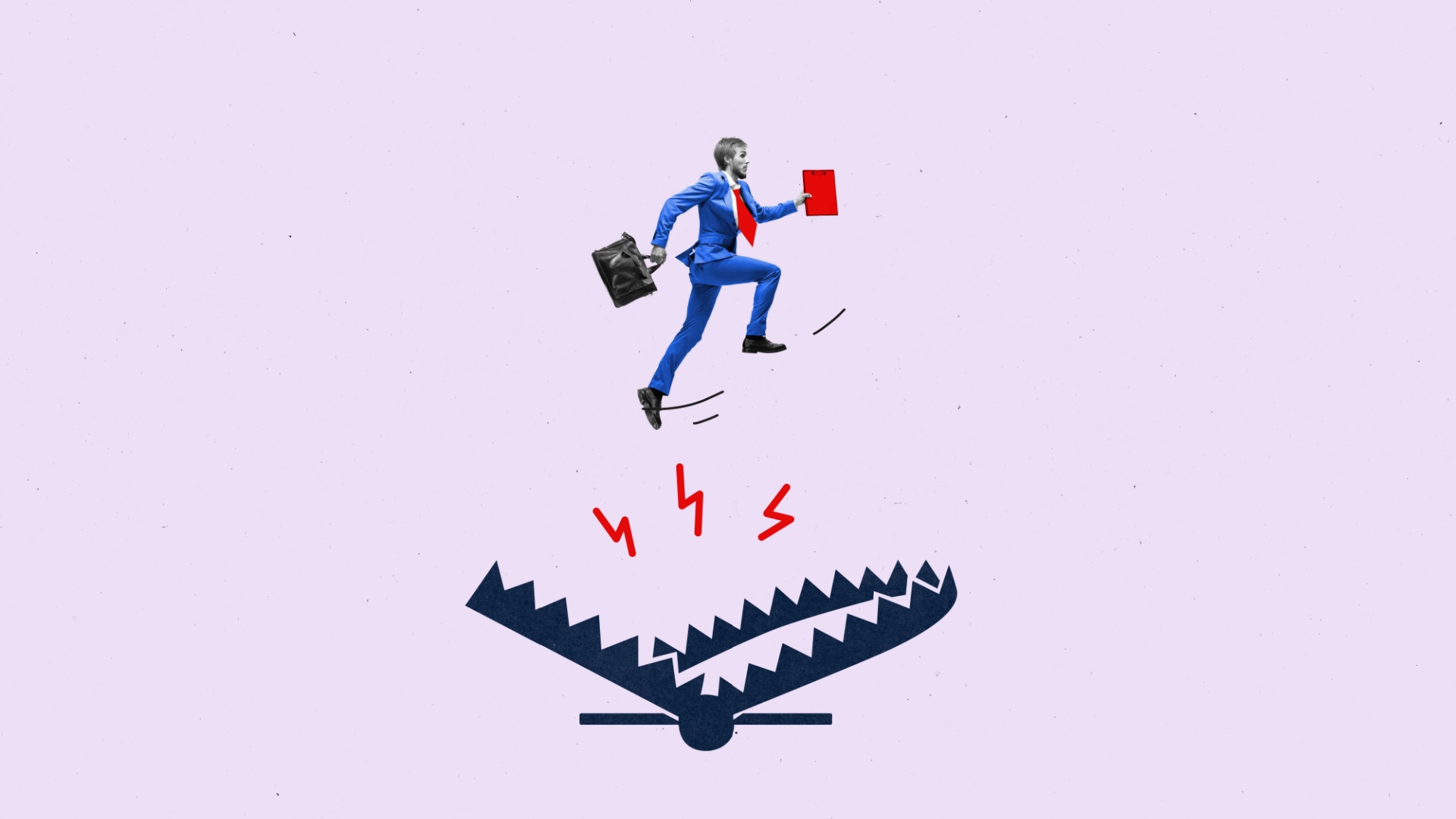 The Psychology of Decision-Making: 7 Traps Leaders Are Most Likely to Fall Into
The Psychology of Decision-Making: 7 Traps Leaders Are Most Likely to Fall Into
 Test. What superpower would you possess if you were a superhero?
Test. What superpower would you possess if you were a superhero?
 Test. What Should You Let Go of Before Winter Ends?
Test. What Should You Let Go of Before Winter Ends?
 Test. Which Ritual Should You Start Practicing This Winter?
Test. Which Ritual Should You Start Practicing This Winter?
